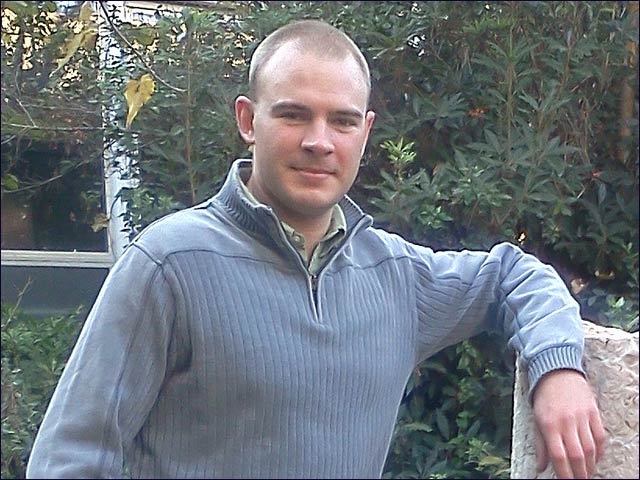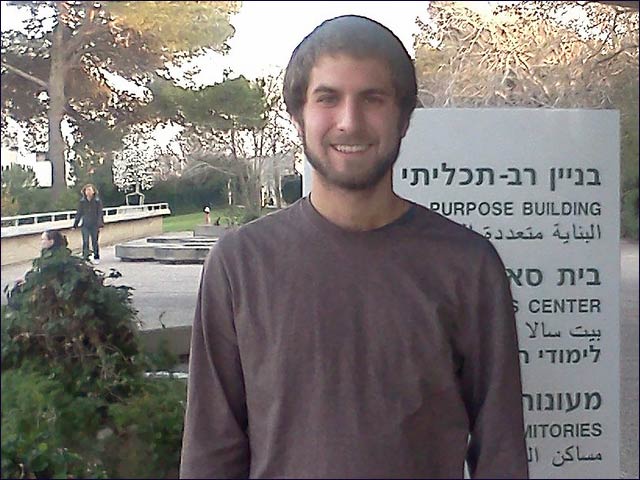By Avigayil Kadesh
Living in the dorms with Israeli students and taking classes taught entirely in English, "the students are investigating ethnic, national, cultural and religious conflicts in deeply divided societies, using the Middle East and Israel as a living classroom for empirical learning and examining specific case studies of conflict," explains Prof. Benny Miller, head of the program.
The 12-month course is a pathway to careers in governmental or non-governmental organizations dealing with issues such as human rights, he says. During their second semester, students will do internships at various NGOs in Israel.
“The idea was to take advantage of Israel in the sense that it’s been engaged, for better or worse, in numerous conflicts, and has had numerous successes in conflict management. Even if there isn’t complete peace yet, Israel has made notable strides, including its peace treaties with Egypt and Jordan,” says Miller.
"Israel is a real-time, hands-on working laboratory for advanced international and Israeli students, offering an encounter with ongoing conflicts as well as successful and failed efforts to achieve peace," University of Haifa Rector Prof. David Faraggi observed.
Haifa is a particularly appropriate setting for this program. “We have had relatively successful experiences here in peaceful coexistence between Jews and Arabs, between Jews from different ethnic backgrounds and between Arabs from various sectarian backgrounds,” Miller says.
“And the university has a lot of research experience in social sciences, international relations, sociology, law, social psychology, Mideast history, communications and related disciplines.”
English academic programs growing at Israeli universities
In 2001, the Interdisciplinary Center in Herzliya offered the country's first bachelor's degree taught entirely in English. Today, most Israeli universities have added undergrad and graduate
courses for overseas students. English-language master's degrees in business administration (MBA), for instance, are available at the University of Haifa as well as Ben-Gurion University in Beersheva, Bar-Ilan University near Tel Aviv, Tel Aviv University and Haifa's Technion-Israel Institute of Technology.
The peace and conflict management degree is the flagship program in Haifa University’s five-year plan to develop 20 master's programs at its International School in areas paralleling the university’s Hebrew offerings in fields such as creative art therapies, patent law, learning disabilities, Holocaust studies, diplomacy, nursing, occupational therapy, Israel studies and maritime civilizations.
“Our International School has been around for 35 years and we have 900 students in our [short-term] study-abroad programs,” says Dean Hanan Alexander. This includes intensive summer instruction in Hebrew and Arabic. “We’re looking to double that program as part of the same internationalization process.”
But while the undergrad, study-abroad students are housed at the International School, the master’s degree students are integrated academically and socially. Israeli students are enrolled in these programs as well.
“We use points of excellence within the university to attract students,” says Alexander. “Students travel all over to study, and when they look at graduate programs they’re looking globally for the best program and the best deal. We are leaders in all these areas, offering unique programs at a reasonable price.” Next year’s tuition for a 12-month master’s will be $8,900.
Alexander notes that the makeup of the peace and conflict management program is half North American and half Jewish, with students from such countries as the United States, China, Mexico, Italy, and Canada. “We’re looking for the best students from across the world,” says Alexander.
Why can’t people live in peace?
Field trips to conflict zones, simulations of peace negotiations, and an international symposium on conflict management in May are all part of the international master’s program. Recently the participants were provided with simultaneous English translation during an international conference at the university on the “Arab spring.”
“They are engaged in a wide variety of activities and can optionally write a master’s thesis,” says Miller.
“Many of the students hadn’t been to Israel before, certainly not on an extended visit,” he reports. “The group is bonding quite well. They have a lot of social interactions with each other and with the Israeli students in the dorms.”
Though the international students aren’t required to learn Hebrew, Alexander says the university has the largest ulpan in the country, and students can choose to avail themselves of that as well as other courses at the university.
“Our three guiding principles in the international school are academic excellence; a caring community, including a fabulous English-speaking staff that lives with and works with the students and helps them in every way; and integration into Israeli society, offering many activities, and trips off campus,” says Alexander.
Washington, DC native Joseph Chapman, 23, spent his formative years in England and returned to the United States just before the 9/11 terror attacks. He said he became absorbed in seeking to understand the mentality of the perpetrators, and enrolled in the University of Haifa's new program to gain expertise before working in the world of conflict resolution.

Joe Chapman came to the Haifa University’s master’s program
to learn about conflict resolution.
Jeremy Rockmacher, from Albany, New York, dreamed of living in Israel for many years and said that he hopes his studies will lead to a job with an organization that addresses the issues of inequality and poverty as related to violence and civil unrest.

Jeremy Rockmacher
Wang Jin, 24, from a small city in the Henan province of China, previously earned a master’s degree in Middle East relations and enrolled in the Haifa master’s program to equip him to become a leading Chinese scholar in the field.
Also in the program is Mexican journalist and photographer Bilha Calderon Gomez, 28. She wanted to gain a different perspective on the workings of social, economic and political crises to better inform her writing about everyday life in Mexico in a local newspaper column.